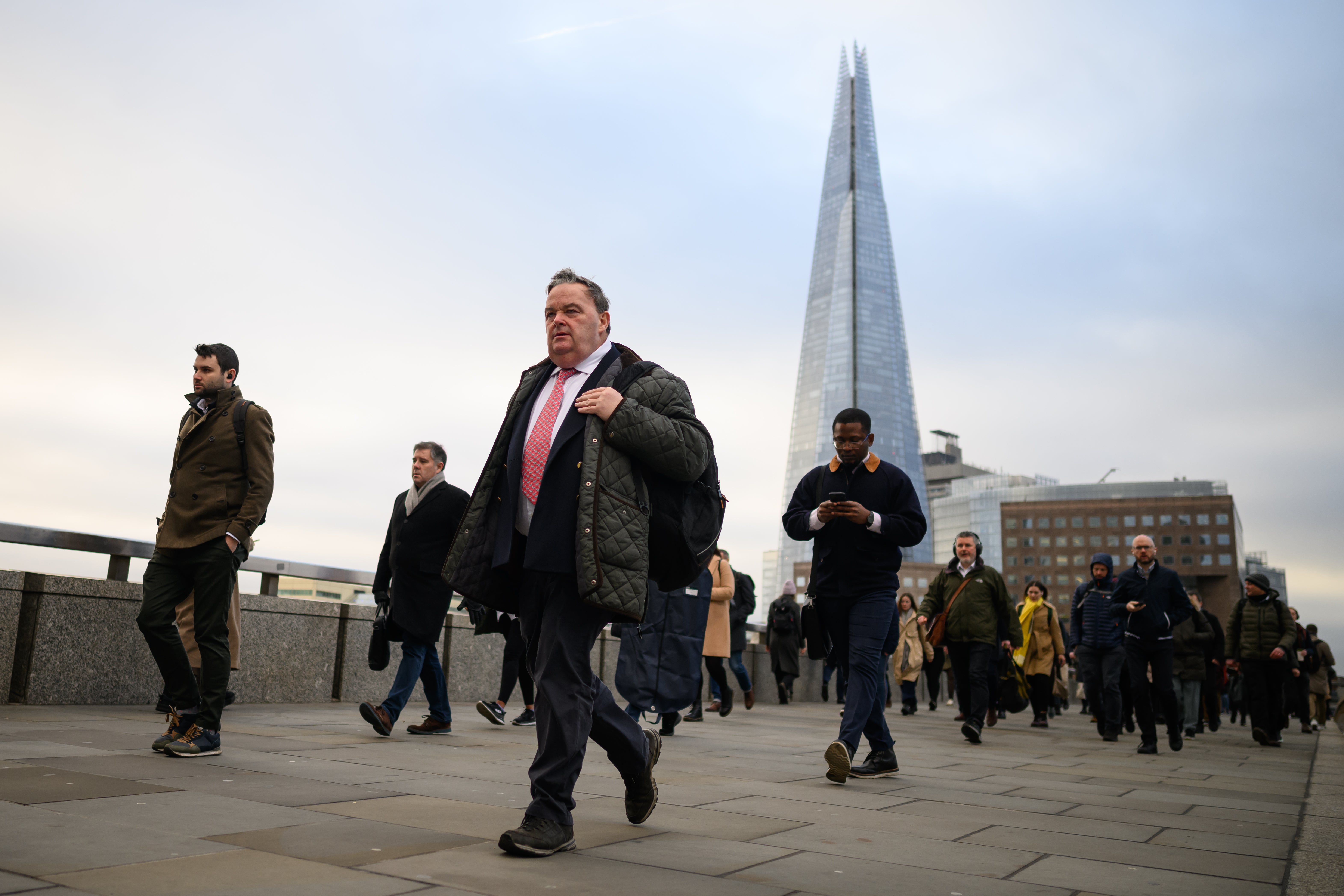How long will the shadow of Reeves’ Budget hang over Britain’s gloomy economy?
Some economists think UK plc will rebound in the New Year, but not everyone is so optimistic, as James Moore explains


Fun fact: the OECD still predicts that Britain’s economy will be one of the stars of the G7 during 2025 with growth of 1.7 per cent, lagging only behind the US at 2.4 per cent.
I wonder how long it is before that forecast gets revised downwards. City economists are pencilling in something more like 1.3 per cent but some big guns, such as Goldman Sachs, come in even lower (1.2 per cent).
Labour’s tax-raising budget, and particularly the decision to raise £24bn by hiking employer national insurance contributions (NICs) looms large over UK plc. It played a role in the Bank of England predicting zero growth for the final quarter of 2024 even though the nasties don’t actually come into force until April.
True, you still have to be something of a Jeremiah to be talking about recession. But some people are.
Forward-looking indicators are less than positive. The most recent composite Purchasing Managers Index (PMI) rolled in at 50.5, barely in positive territory with anything above 50 indicating growth.
This chimes with the various surveys of business confidence, which have been showing a decline. The Institute for Chartered Accountants in England & Wales (ICAEW) monitor found a dip in the third quarter of the year to plus 14.4. That is high by historic standards but note that it came before the Budget.
The Bank of England’s governor Andrew Bailey talked of “heightened uncertainty in the economy” as the rate-setting Monetary Policy Committee kept base rates on hold after a 6-3 vote. In part that is because we don’t know for certain how companies will react to the sharply higher costs they face from the NICs rise, which increases the cost of every employee.
Plenty have issued warnings of price increases and/or job cuts, including big guns like Tesco. They have also said business investment, something the UK desperately needs more of, will fall. A lot depends on how this plays out in practice.
The ICAEW found “plans to slow the growth in capital investment and R&D spending to below historical norms” in its pre-budget monitor. The next one will make for particularly interesting reading, probably not in a good way.
One thing that has bailed UK plc out in the past has been the British consumer. Britons like to shop and they have kept the economy hale when other indicators have been trending downwards on many previous occasions.
However, the government, which has made some big promises about the growth it wants to see, and badly needs if it is to fund necessary improvements to the nation’s faltering public services, shouldn’t pin its hopes on the sometimes surprising resilience of the British shopper this time.
The latest official figures on retail sales, published by the Office for National Statistics, found that November was flat: up just 0.2 per cent. (This was before the Black Friday consumer binge, and it was an improvement on the 0.7 per cent fall recorded in October ... but it seems clear that consumers are nervous.) Forward-looking surveys of consumer confidence have been mired in negative territory.
True, wages are outpacing inflation, and have been doing so for some time now. But much of that has been eaten up by increased housing costs, whether from higher mortgage rates or via the soaring costs of renting.
One of the more interesting lines in the Bank of England’s minutes covering Thursday’s decision to hold rates was that 37 per cent of mortgage holders on cheap deals dating from the time when base rates were at near zero, have yet to get hit by the shock of remortgaging at today’s much higher prices.
All this tells us that a government that says it is prioritising growth, growth, growth, has an awful lot of work to do in the wake of a Budget that increasingly looks like it has attached a lead weight to the legs of UK plc.
The investment spending Reeves has promised – which ought to provide a timely boost – clearly can’t come soon enough.
Labour has had a poor start in office, with a string of unforced errors, including parts of her Budget. The UK economy is crawling into 2025... the same could be said of the government.






Join our commenting forum
Join thought-provoking conversations, follow other Independent readers and see their replies
Comments